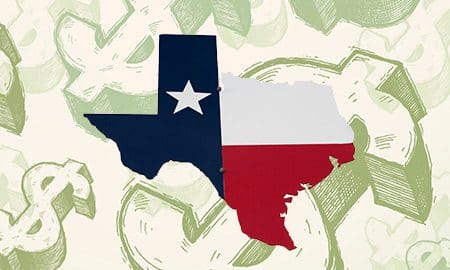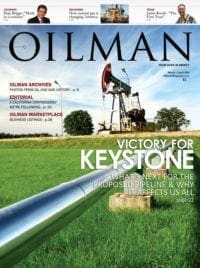Every business sector has a complex set of tax laws that are industry-specific, and with the large numbers produced by the oil and gas industry, a misunderstanding of tax codes can lead to big penalties in short order.
To help give their members a better understanding of taxes unique to the petroleum industry, the Desk and Derrick Club of San Angelo invited three enforcement officers from the State of Texas Comptroller’s Abilene field office to address the attendees at their luncheon held at the San Angelo Country Club on Wednesday.
Their presentation was titled “Taxability in the Oilfield and Related Industries.”
First to speak was Vanessa Zientek, a 30-year comptroller veteran who oversees the Abilene and San Angelo offices. She began by explaining about Severance Taxes on mineral resources taken from Texas’ lands.
“Severance has to do with extracting resources; we tax natural gas, oil, sulphur or coal — any minerals taken out of the earth — under the state’s severance tax statutes. [Natural gas] severance taxes are statutorily set at a rate of 7.5 percent of the market value for gas extracted from within the state’s borders.”
She said the severance-tax rate for crude oil and condensate is 4.6 percent of the market value.
“Obviously the industry — as part of Texas’ economy — represents a major source of income for the state, and these revenues are deposited into the Economic Stabilization fund, also known as the Rainy Day fund.
“Twenty-five percent of the total deposits from the Rainy Day fund are allocated for public education, so a huge amount of what the industry does supports Texas education.”
Zientek told the group where to find these tax rules on the internet and cited impressive figures about the income produced for the people of Texas by oil and gas businesses.
“Another tax you are probably familiar with is the oil-well servicing tax, also known as the 242 tax; this tax is for 2.42 percent of gross amount for charges on a service, less the reasonable value of any materials used…this is actually for companies that provide oil and gas well services out at the site and it’s not under the sales tax or the severance tax, but is actually an occupational tax,” she explained.
She said that well cementing, acidizing, surveys, workovers and roustabouts all fall into this category and must invoice their customers accordingly.
Next to speak was Robin Tovias who talked about sales taxes.
“Our function at the Comptroller’s office is to administer 60 different taxes, which many you are familiar with… but there are also some you may not have heard of like the new mixed-beverage sales tax that went into effect in January…we also process about four million tax returns annually and we work to educate tax payers, through seminars like this, and encourage compliance.”
Tovias talked about a variety of jobs — from gate guard to welder — and the different tax classifications that govern whether sales tax should be collected by them or not.
For instance “gate guard” is a taxable service, but there is an exemption if the guard is an off-duty law enforcement officer.
She told the attendees that as responsible parties they need to be sure about the status of anyone doing work or providing services for their businesses.
Tovias also touched on taxability issues for man-camps as well as people who rent out a room in their house; she said they are subject to hotel-occupancy taxes unless it is an extended-stay situation and discussed the rules that cover that area.
Robin Whalen addressed the group about rental and repair of tangible personal property.
“The total charge to repair, restore or remodel tangible personal property is taxable,” she said. “And the things I will be talking about are your [valve assemblies], wellheads and other well components such as flow lines and tank batteries.”
Whalen went on to discuss how the state views labor and materials for taxation purposes and how companies need to invoice appropriately in order to be fully compliant.
She talked about how important the revenues generated by the energy sector are to the people of Texas and how these funds come back to cities and counties for vital areas like transportation.
“We have learned so much about the [oil & gas] industry…we learned words that we had never spoken before, and it has been very enlightening for us, to learn about these things…we still have yet to get to go out on a drilling site – hint, hint – we would love to do that, so that we can see the actual things that we are speaking about…because we depend on those workers to tell us about what they do, and that helps us to determine taxability,” Whalen said.
Whalen said in order to help educate taxpayers the Comptroller’s website features the State Tax Automated Research (STAR) query system that can help pin down exactly what taxes should be collected by any given business.
After the presentation attendees were invited to ask questions and a lively exchange followed.
The Desk and Derrick Club of San Angelo has been active for more than 60 years, helping to educate professionals from the energy sector and promote a positive image for the industry.
In 2013 Club President Rene Peckham was recognized nationally for her accomplishments receiving the Association of Desk and Derrick Clubs’ Special Achievement Award for her many efforts. The San Angelo club’s membership has increased by 327 percent since January of 2013.
The current President is Tiffanie Black.
To learn more about the Desk and Derrick Club of San Angelo follow this link.
To see if you are collecting the right taxes for your business follow this link to the STAR website.





